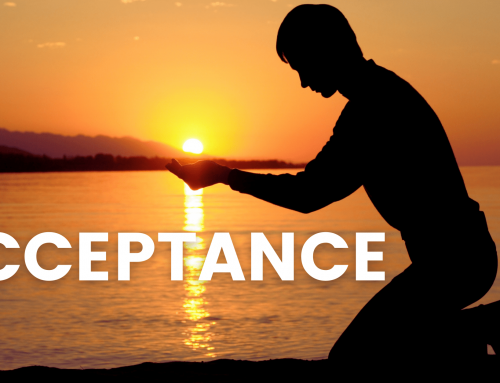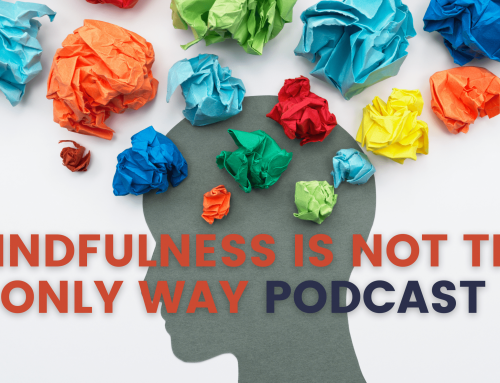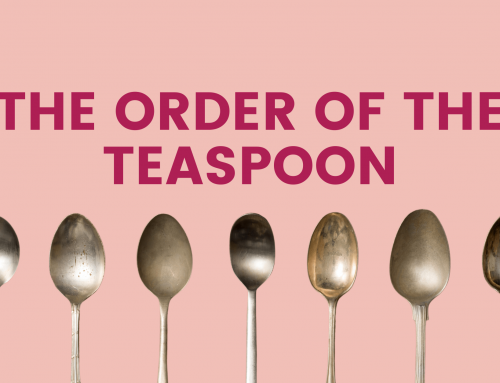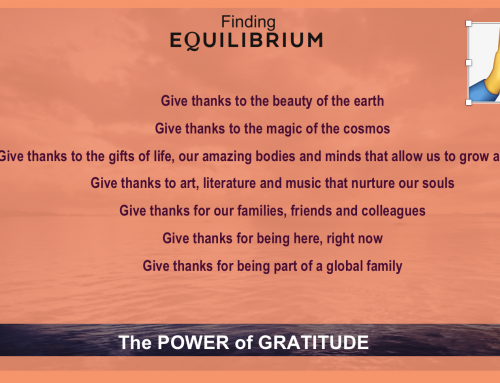‘Walking makes us healthier, it enhances cognitive performance, from creativity to planning and scheduling, and it helps us to connect with our environment, ourselves and those around us.’
Arianna Huffington
I spent most of Friday morning walking from Chelsea to Sutton. To be clear, I don’t usually walk 14 miles in one morning, but it was a sponsored walk known as the Marsden March, raising money for the Royal Marsden hospital in Sutton..
To be honest, I volunteered to do the walk months ago and as the date got closer and my schedule got busier, I was seriously considering whether or not to give my place to someone else! Why just on Wednesday morning, whilst this thought was in my mind, I stubbed my toe very hard on a board that was sticking out! Fortunately, it didn’t cause any lasting damage and I was on the bus at 8.30am, Friday morning together with 69 colleagues, heading to the start point.
We were really lucky with the weather and the three hours forty five minutes that it took got me thinking about many of the benefits that walking, as a form of exercise, delivers to support positive wellbeing:
Physical & mental wellbeing – to start, we were designed to move, so daily walking is going to be very good for managing your weight and other physical benefits, but we are more than our physical bodies and research is showing how beneficial walking can be for your mental wellbeing too. For example, in a series of studies at the University of Essex in the UK, researchers found that 94% of those who took part in daily exercise saw mental health benefits. Similarly, just last week, the Telegraph covered a story about the results that a GP and former rugby professional had seen in his practice by prescribing walking. A Manchester University audit of Dr John Morgan’s practice in Wigan revealed that of the patients who joined his walking group, 29% were able to give-up anti-depressants and 92.5% reported improvements in mood.
In addition, almost all had reduced blood pressure, and two thirds had lost weight. Whilst we perhaps don’t think of walking as a serious exercise, each step uses 200 muscles and you can burn off 100 calories in just 1 mile.
Saves money – walking saves money directly on transport costs which will directly benefit your pocket and the environment, but there are also much larger indirect cost benefits to have. With a growing issue of obesity in our society and the direct impact that has on chronic conditions such as heart disease, hypertension and type 2 diabetes, walking can help people get daily exercise without having to go to gyms which can help reduce the requirement for prescription drugs which is exactly what Dr John Morgan’s walking group experience showed. On a larger scale, when you consider that in the US, healthcare costs represent 16% of the total economy, any reduction through preventative measures will free up resources for other things.
Creativity – walking gives you the opportunity to enter a new environment which is great for stimulating new ideas. Arianna Huffington, in her book: Thrive, highlighted how she came up with many of her best ideas whilst walking which led to the development of The Huffington Post. Personally, I find daily walks or runs help me think more clearly and also gives me the space to tap into other sources of inspiration by listening to audio books and podcasts which stimulate the creative side of my brain.
Problem solving – walking with others gives you the opportunity to discuss a problem or situation together, side by side. When you’re walking, you’re awake to what’s happening around you, your senses are heightened and you can’t be checking e-mail or social media. Silcon Valley executive Nilofer Merchant calls this the ‘walk the talk’ method, describing how walking frequently leads to solutions for all kinds of problems.
Social wellbeing – walking with others also gives you the opportunity to mix social time with physical activity. For instance, whilst walking with my colleagues on Friday, we discussed so many interesting topics ranging from travelling in Australia, innovation to Bird-Watching, a topic I knew very little about! The time flew by. In their bestselling book, Wellbeing, Tom Rath and Jim Harter highlight the benefits of combining walking with social interaction, explaining how combining social interaction with physical activity has a compounding effect on our general wellbeing.
Managing stress – walking is a great way to help you manage negative stress. Brendan Brazier, author of Thrive: The Vegan Nutriton Guide, differentiates between negative stress, the type of stress that depletes your energy reserves, and the positive stress that motivates you and gives you increased amounts of energy to increase your productivity. He points to studies that show how destructive negative stress can be if left unchecked, and how this can ripple through your life, leading to poorer food choices, poorer sleep, poorer decisions and a general downward spiral that causes all kinds of chronic illnesses.
One of the prime recommendations made to patients at the Chopra Center is a brisk half-hour walk every day, because, as Deepack Chopra, in his book: Perfect Health, puts it:
‘’One gets lightness, a capacity for work, firmness, tolerance of difficulites, elimination of purities and stimulation of digestion’.
Finally, according to the results of one wellbeing survey of 400k Americans, only 27% get the recommended 30 minutes or more of exercise five days per week, so there’s plenty of opportunity for improvement.
So please try not not to be in that 27% and take action now by:
- Scheduling a walk with a friend, colleague or neighbor everyday
- Taking the opportunity to walk with someone else if you need to speak to them, rather than sitting in a meeting room
- Walking at the end of the day to clear your mind and rid yourself of all the negative thoughts of the day and not spend the first 10 minutes moaning at a family member when you reach home!


 Physical & mental wellbeing – to start, we were designed to move, so daily walking is going to be very good for managing your weight and other physical benefits, but we are more than our physical bodies and research is showing how beneficial walking can be for your mental wellbeing too. For example, in a series of studies at the University of Essex in the UK, researchers found that 94% of those who took part in daily exercise saw mental health benefits. Similarly, just last week, the Telegraph covered a story about the results that a GP and former rugby professional had seen in his practice by prescribing walking. A Manchester University audit of Dr John Morgan’s practice in Wigan revealed that of the patients who joined his walking group, 29% were able to give-up anti-depressants and 92.5% reported improvements in mood.
Physical & mental wellbeing – to start, we were designed to move, so daily walking is going to be very good for managing your weight and other physical benefits, but we are more than our physical bodies and research is showing how beneficial walking can be for your mental wellbeing too. For example, in a series of studies at the University of Essex in the UK, researchers found that 94% of those who took part in daily exercise saw mental health benefits. Similarly, just last week, the Telegraph covered a story about the results that a GP and former rugby professional had seen in his practice by prescribing walking. A Manchester University audit of Dr John Morgan’s practice in Wigan revealed that of the patients who joined his walking group, 29% were able to give-up anti-depressants and 92.5% reported improvements in mood. Saves money – walking saves money directly on transport costs which will directly benefit your pocket and the environment, but there are also much larger indirect cost benefits to have. With a growing issue of obesity in our society and the direct impact that has on chronic conditions such as heart disease, hypertension and type 2 diabetes, walking can help people get daily exercise without having to go to gyms which can help reduce the requirement for prescription drugs which is exactly what Dr John Morgan’s walking group experience showed. On a larger scale, when you consider that in the US, healthcare costs represent 16% of the total economy, any reduction through preventative measures will free up resources for other things.
Saves money – walking saves money directly on transport costs which will directly benefit your pocket and the environment, but there are also much larger indirect cost benefits to have. With a growing issue of obesity in our society and the direct impact that has on chronic conditions such as heart disease, hypertension and type 2 diabetes, walking can help people get daily exercise without having to go to gyms which can help reduce the requirement for prescription drugs which is exactly what Dr John Morgan’s walking group experience showed. On a larger scale, when you consider that in the US, healthcare costs represent 16% of the total economy, any reduction through preventative measures will free up resources for other things. Creativity – walking gives you the opportunity to enter a new environment which is great for stimulating new ideas. Arianna Huffington, in her book: Thrive, highlighted how she came up with many of her best ideas whilst walking which led to the development of The Huffington Post. Personally, I find daily walks or runs help me think more clearly and also gives me the space to tap into other sources of inspiration by listening to audio books and podcasts which stimulate the creative side of my brain.
Creativity – walking gives you the opportunity to enter a new environment which is great for stimulating new ideas. Arianna Huffington, in her book: Thrive, highlighted how she came up with many of her best ideas whilst walking which led to the development of The Huffington Post. Personally, I find daily walks or runs help me think more clearly and also gives me the space to tap into other sources of inspiration by listening to audio books and podcasts which stimulate the creative side of my brain. Problem solving – walking with others gives you the opportunity to discuss a problem or situation together, side by side. When you’re walking, you’re awake to what’s happening around you, your senses are heightened and you can’t be checking e-mail or social media. Silcon Valley executive Nilofer Merchant calls this the ‘walk the talk’ method, describing how walking frequently leads to solutions for all kinds of problems.
Problem solving – walking with others gives you the opportunity to discuss a problem or situation together, side by side. When you’re walking, you’re awake to what’s happening around you, your senses are heightened and you can’t be checking e-mail or social media. Silcon Valley executive Nilofer Merchant calls this the ‘walk the talk’ method, describing how walking frequently leads to solutions for all kinds of problems. Social wellbeing – walking with others also gives you the opportunity to mix social time with physical activity. For instance, whilst walking with my colleagues on Friday, we discussed so many interesting topics ranging from travelling in Australia, innovation to Bird-Watching, a topic I knew very little about! The time flew by. In their bestselling book, Wellbeing, Tom Rath and Jim Harter highlight the benefits of combining walking with social interaction, explaining how combining social interaction with physical activity has a compounding effect on our general wellbeing.
Social wellbeing – walking with others also gives you the opportunity to mix social time with physical activity. For instance, whilst walking with my colleagues on Friday, we discussed so many interesting topics ranging from travelling in Australia, innovation to Bird-Watching, a topic I knew very little about! The time flew by. In their bestselling book, Wellbeing, Tom Rath and Jim Harter highlight the benefits of combining walking with social interaction, explaining how combining social interaction with physical activity has a compounding effect on our general wellbeing. Managing stress – walking is a great way to help you manage negative stress. Brendan Brazier, author of Thrive: The Vegan Nutriton Guide, differentiates between negative stress, the type of stress that depletes your energy reserves, and the positive stress that motivates you and gives you increased amounts of energy to increase your productivity. He points to studies that show how destructive negative stress can be if left unchecked, and how this can ripple through your life, leading to poorer food choices, poorer sleep, poorer decisions and a general downward spiral that causes all kinds of chronic illnesses.
Managing stress – walking is a great way to help you manage negative stress. Brendan Brazier, author of Thrive: The Vegan Nutriton Guide, differentiates between negative stress, the type of stress that depletes your energy reserves, and the positive stress that motivates you and gives you increased amounts of energy to increase your productivity. He points to studies that show how destructive negative stress can be if left unchecked, and how this can ripple through your life, leading to poorer food choices, poorer sleep, poorer decisions and a general downward spiral that causes all kinds of chronic illnesses.




